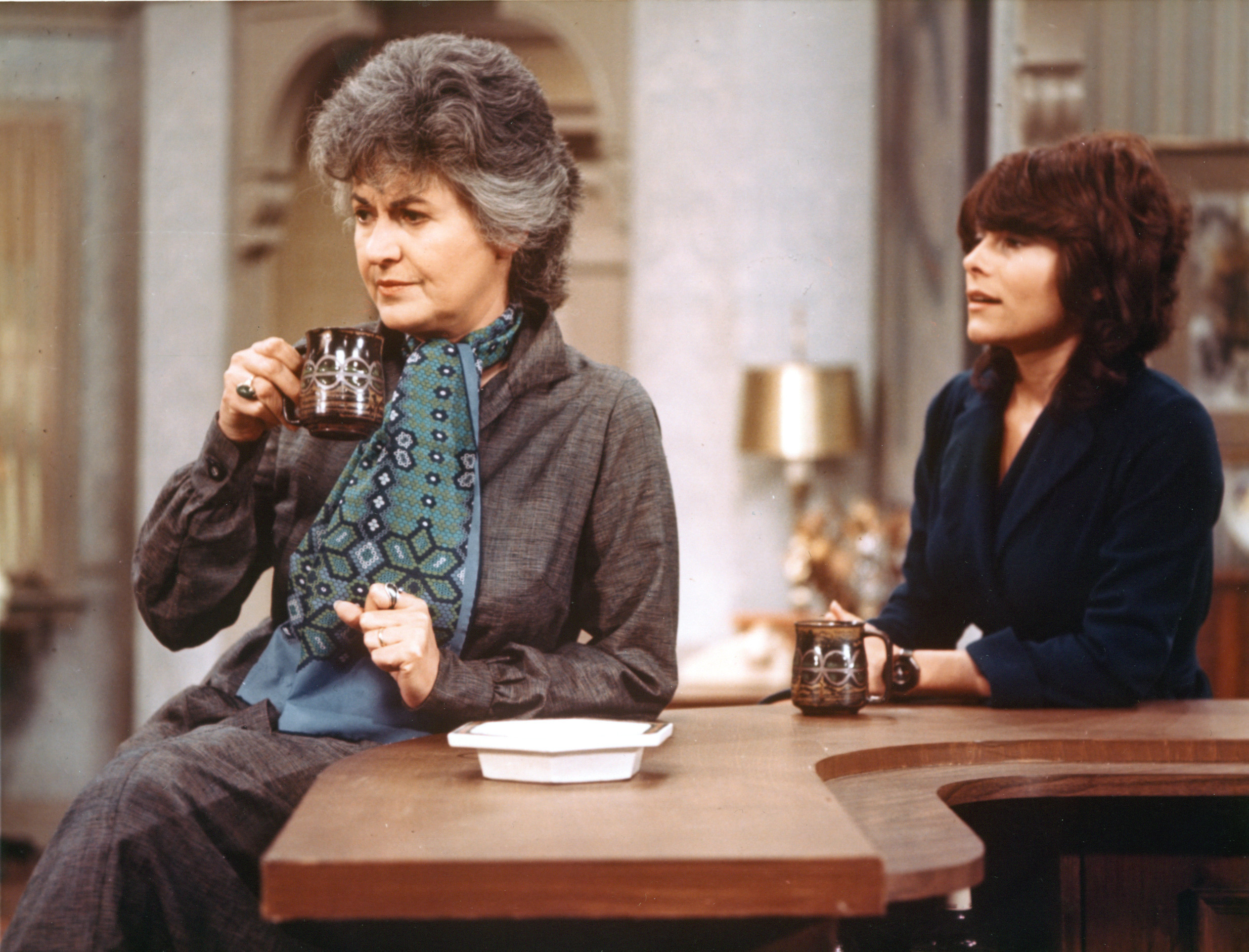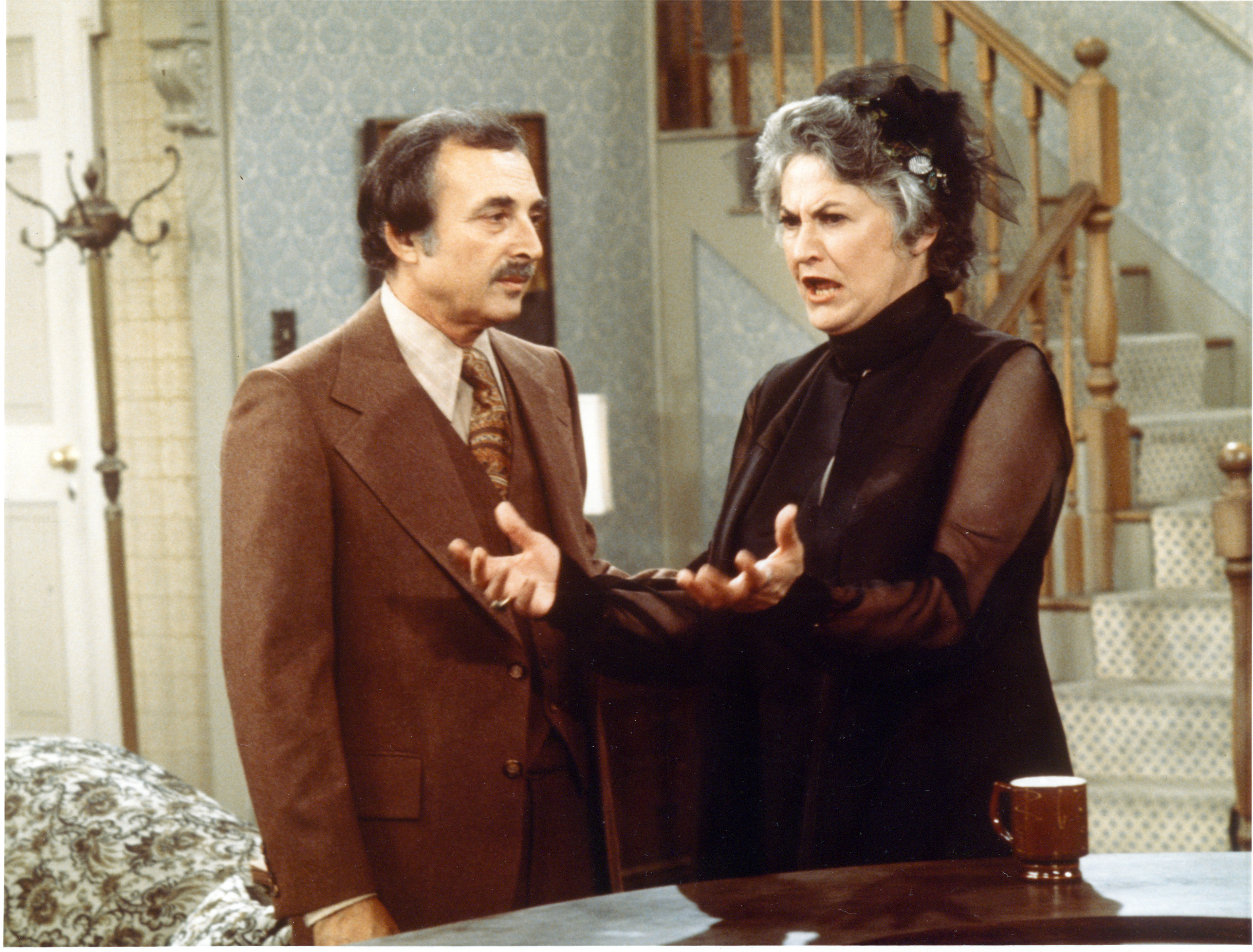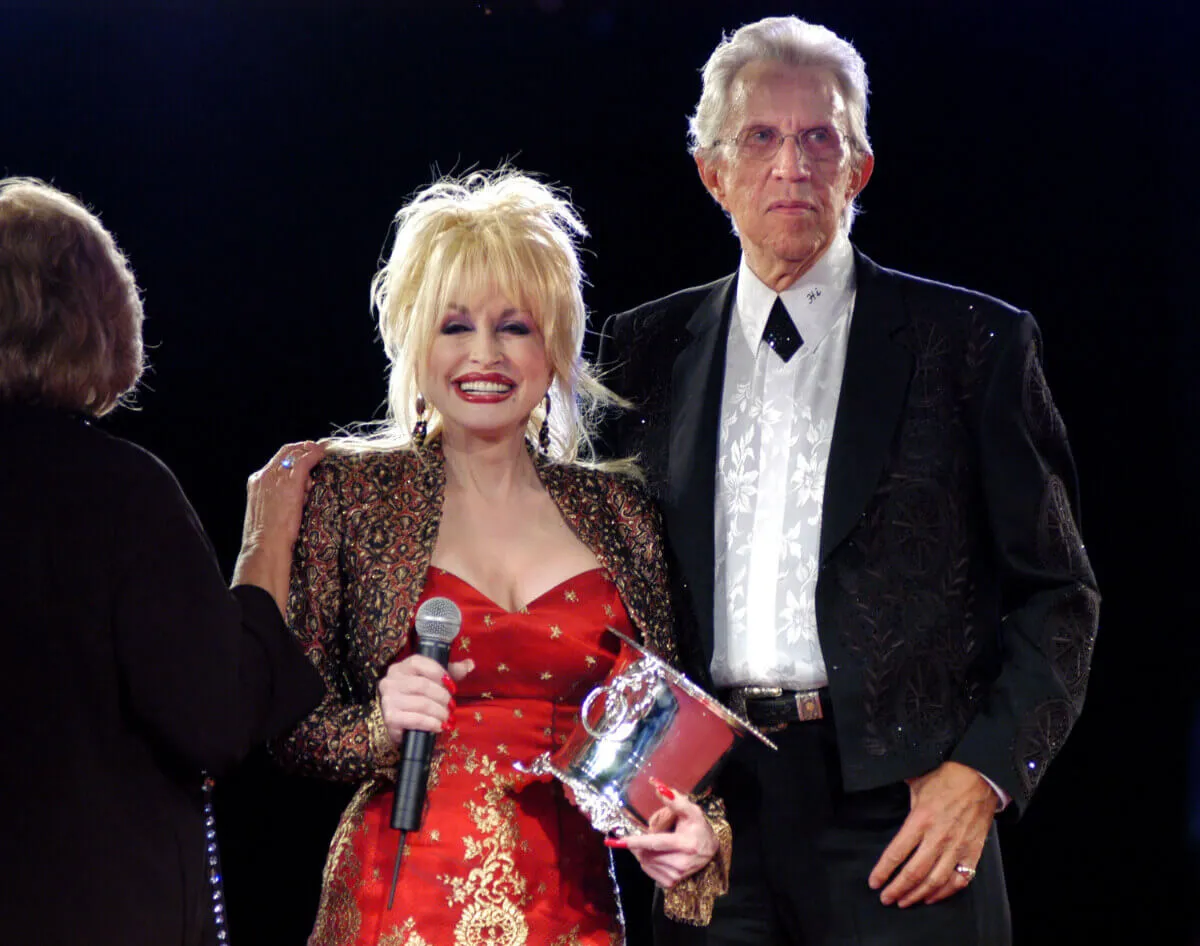‘Maude’: How Bea Arthur Got the Television Role That Made Her a Star – and Why She Eventually Left
When the comedy series Maude ran on CBS in the 1970s, it didn’t just raise critics’ and viewers’ eyebrows with its controversial subject matter – it also raised a standard in how situation comedies were done.
Its lead actor, Bea Arthur, became a certified star thanks to the Norman Lear-produced comedy but in the end she chose to leave by its sixth season.

CBS via Getty Images
Lear discovered Arthur in a theater show
Executive producer Norman Lear described the moment he “met” Bea Arthur in a theater production and saw her potential for the small screen.
“In 1955, I saw an Off-Broadway musical called Ben Bagley’s Shoestring Revue, which featured a showstopping torch song called “Garbage,” sung by a tall, deep-throated woman in her early 30s,” Lear wrote in his memoir, Even This I Get to Experience. “She was leaning against a streetlight at night, in a slinky black dress, singing a bluesy torch song about a man she loved who treated her like garbage.”
Lear found her “altogether hilarious,” and found her work on the television variety program, The George Gobel Show.

She was Edith Bunker’s cousin on ‘All in the Family’
Eventually, Lear found the role he knew Arthur was born to play, casting her as Edith Bunker’s sharp-tongued, politically liberal cousin Maude Findlay on All in the Family.
“Bea Arthur as Maude made me laugh in places in my body I would never have known existed otherwise,” Lear said. “Her reaction to the bullsh*t in ordinary life was a gift to the character and contained a degree of truth-seeking madness that got to me and wrung me out. The madness originated in the woman, the actress.”
Arthur’s performance on the comedy starring Carroll O’Connor and Jean Stapleton caught the attention of the higher-ups at CBS.
“The episode guest-starring Bea aired halfway into All in the Family‘s second season,” Lear wrote. “As the end credits were running in New York, CBS’ programming chief, Fred Silverman, called. ‘That woman should have her own show,’ he said, to which I responded, ‘What a great idea!'”
‘Maude’ hit the ground running in 1972 with controversy
The situation comedy made Bea Arthur a household name and the show covered topics that at that point in time were still considered taboo on television. From the war in Vietnam to women’s rights, alcoholism and menopause, there was little Maude didn’t touch on.
Lear revealed that there were rarely any in-between emotions for Maude; viewers either loved the outspoken matriarch or hated her: “The character was a role model and hero to all who cheered the [women’s] movement on, and was reviled by those who held fast to the idea that ‘a woman’s place is in the home.'”
The show really caused controversy when it devoted an episode to abortion.
“Those feelings were further ruffled when I elected to have Maude get pregnant and agonize with her family over whether or not to have the child at her age. (She was nearing 50.) She chose to abort,” Lear said.
The two-part episode nearly didn’t make it on the air until Lear promised CBS that in the script would be a character who “had four kids, was pregnant with a fifth that she could not afford emotionally or economically, yet for whom an abortion was out of the question – and who didn’t understand how Maude could see it any other way.”
By 1978, Maude had covered every possible social and moral issue under the sun and Arthur called it quits.
As she told The New York Times that year after announcing her decision to leave the show, “It isn’t so much that we don’t tackle as many controversial issues as we once did as that there aren’t many more controversial issues to tackle. The only thing left is hemorrhoids.”


